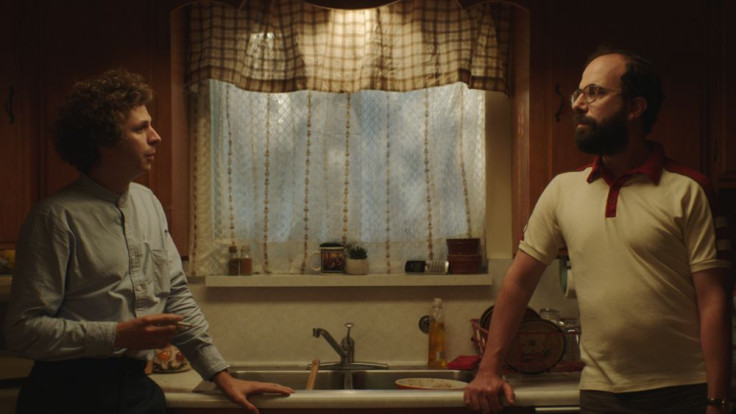Did you know Los Angeles is full of simultaneously vapid and pretentious people? That actors compensate for the indignities of their field with alienating in-group policing and weird little games like “animal work”? That California liberal enclaves are riddled with phony sophisticates with drummed up international spiritual experiences? Or that well-intentioned white people say awkward things to black people in uncomfortable attempts at solidarity? Because Lemon knows.
But once you accept that Lemon is an LA movie to its bones, with all the self-fawning that entails, Lemon gets weird. Despite the battery of familiar faces and the L.A. acting scene setting, Lemon is unlike most comedies, thanks to a precision not typically seen in the loose and improvisational style of mainstream comedies and a focus on physicality and performance not typical to indie comedies that focus on oddity or verbosity. Lemon director Janicza Bravo is fantastic at nudging familiar characters like Cera just enough that they become something altogether different.
Most cringe comedies have their oddballs and straights, one bouncing off the other. The awkward character needs someone to treat what they did as embarrassing, otherwise was it really so embarrassing? But while Lemon feels of that mold, it has more than awkwardness on its mind. Instead of an examination of dysfunction, Lemon treats those cringe moments as ejaculations of id. And rather than matching them with the friction of social clumsiness, Lemon heightens each moment with a counter-expression. Almost everyone in Lemon says uncomfortable things as if they have no control. And rather than reacting, generating those moments of exquisite discomfort we expect of this kind of comedy, the other person replies with their own innermost clumsiness. Rather than dysfunction, awkwardness becomes the purest possible expression of ourselves.
It’s a powerful difference that’s hard to describe, but a sea change to watch. You think you know Lemon, but slowly it dawns on you just how different it feels from Alan Partridge or Peepshow or even weirder variants like The Eric Andre Show.
Isaac (Brett Gelman) is an aging LA actor who tyrannizes his acting class but only ever books photo shoots for pharmaceutical ads for Hepatitis C drugs. He can’t even land an adult diaper commercial. He’s a complete basketcase, lashing out like a snake then whimpering for affection, sometimes on both ends of the same sentence. He desperately wants the approval of his student, Alex (Michael Cera), who has only aloofness and matching pretensions (a dinner scene between the two of them begins and ends in violence only actors could take seriously). But most of all he wants love, and his long-term girlfriend (Judy Greer) is repulsed by him. Dating doesn’t go much better. He sucks.
But before Isaac winds up at a Caribbean family BBQ (“I didn’t know there’d be accents to deal with,” he moans), pushing his efforts at normal social function far past their breaking point, we see Isaac with his own family. It’s a seder where we begin to see exactly what Lemon is up to. His parents, Rhea Perlman and Fred Melamed, joined by David Paymer, are not just pushing their open, talkative Jewish personas to the max, they’re each pure expressions of their own inner monologues. People just dump, constantly, with no consideration for reaction or conversational self-defense. These are open people: openly broken, often cruel, more often vulnerable and always beautiful for it.
When Isaac begins dating Cleo (Nia Long), we see an outpouring of his poisons. He can be sweet, but is more often ignorant of her feelings, desperate and prone to talk about a universal black experience he’s seen in documentaries than acknowledge anything about her. Cleo’s son laughs at him throughout dinner at her house. But Cleo never rebukes him, he does it himself, so full of shit (literally, Lemon takes a run at Dumb & Dumber ) he can’t stand anything outside his limited purview. His car’s the lemon of the title, but is he just as broken? Lemon ends with Isaac at his lowest. It’s unbelievably refreshing not to have to watch his redemption arc; it’s more than enough to know that the path is available to him.







![Best Gaming Mouse For Gamers With Smaller Hands [2025]](https://d.player.one/en/full/227430/best-gaming-mouse-gamers-smaller-hands-2025.png?w=380&h=275&f=fdcf47c1c5fc58d1e41d3be505c12568)










